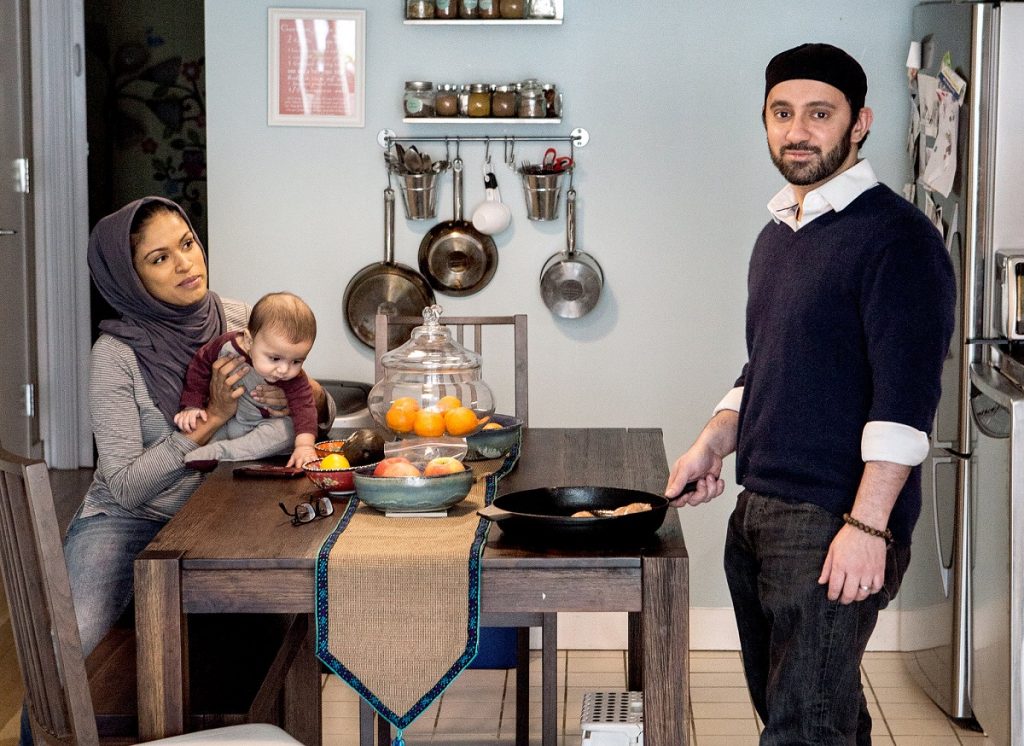Imam Khalid Latif: The Inspiring Muslim Leader Bridging Faith, Justice, and Community in America
How Imam Khalid Latif’s leadership at NYU and beyond redefines Muslim identity, interfaith dialogue, and social justice in the modern era.

Imam Khalid Latif stands among the most influential Muslim voices in the United States today — a spiritual leader, interfaith bridge-builder, and tireless advocate for social justice. As the Executive Director and Chaplain for the Islamic Center at New York University (ICNYU), Latif has dedicated his life to promoting faith, inclusion, and compassion across divides of religion, race, and culture. His work has made him a respected figure not only among American Muslims but also within the broader interfaith and academic communities of New York City and beyond.
Early Life and Education
Born and raised in the United States to Pakistani immigrant parents, Khalid Latif grew up navigating the dual worlds of American society and Islamic tradition. His early experiences with identity, faith, and belonging shaped his commitment to fostering understanding between Muslims and the wider public. After completing his undergraduate studies, he went on to pursue higher education at New York University (NYU), where his leadership qualities quickly became evident.
Latif’s journey into chaplaincy began with a vision: to create spaces where Muslim students could practice their faith openly and confidently, while also engaging in meaningful dialogue with others. His appointment as NYU’s first Muslim chaplain marked a milestone in the university’s history and paved the way for greater representation of Muslim voices in higher education.

Leadership at the Islamic Center at NYU
Under Imam Latif’s leadership, the Islamic Center at NYU (ICNYU) evolved from a small student prayer group into one of the most dynamic Muslim institutions in the United States. The center now serves thousands of students, professionals, and families, offering a space for prayer, learning, and service.
Latif’s approach to religious leadership is deeply inclusive. He emphasizes that Islam is not confined to rituals but is a living, breathing tradition that encourages compassion, critical thought, and community service. Through lectures, spiritual retreats, and interfaith dialogues, he has helped reshape perceptions of Islam among both Muslims and non-Muslims.
Interfaith and Social Justice Advocacy
Beyond NYU, Imam Khalid Latif has become a leading voice for interfaith cooperation and social justice. He has collaborated with Christian, Jewish, and secular organizations to combat Islamophobia, racism, and poverty. His message is simple yet profound: “Faith must be lived through service.”
Latif is also known for his activism around issues such as homelessness, police reform, and the refugee crisis. He frequently represents the Muslim community in public discussions and has spoken at major institutions, including the United Nations, Harvard University, and the White House.
In the aftermath of 9/11, when anti-Muslim sentiment was at its peak, Latif’s calm and articulate presence helped challenge stereotypes. He has consistently used his platform to promote empathy and understanding, reminding audiences that true faith calls for standing up for justice — not just for Muslims, but for all oppressed communities.
Public Recognition and Media Presence
Imam Khalid Latif’s influence extends far beyond the pulpit. His TED Talk, “Faith in the Face of Hate,” has been viewed widely and praised for its heartfelt message on resilience and unity. He has appeared on major media outlets such as CNN, The New York Times, and Al Jazeera, and was featured in the Emmy Award-winning HBO documentary “The Muslim on the Mountain.”
In 2010, he was appointed as the first Muslim chaplain of the New York Police Department (NYPD), symbolizing a step toward greater cooperation between law enforcement and Muslim communities.

A Vision for the Future
For Imam Khalid Latif, leadership is not about titles but about service. His focus remains on building a future where young Muslims can live their faith proudly and contribute meaningfully to society. Whether mentoring students, guiding families, or speaking to world leaders, he continues to embody the prophetic principles of mercy, wisdom, and justice.
In an era of polarization and division, Latif’s voice serves as a moral compass — reminding the world that faith can still be a force for peace, dignity, and unity.



